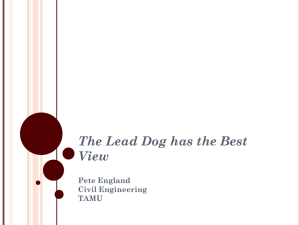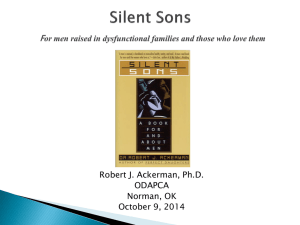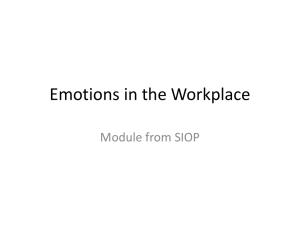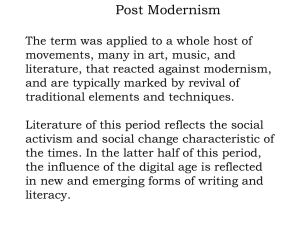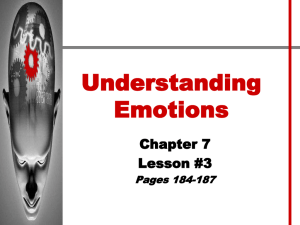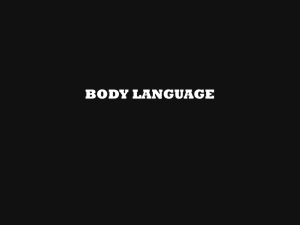Balance Slides
advertisement
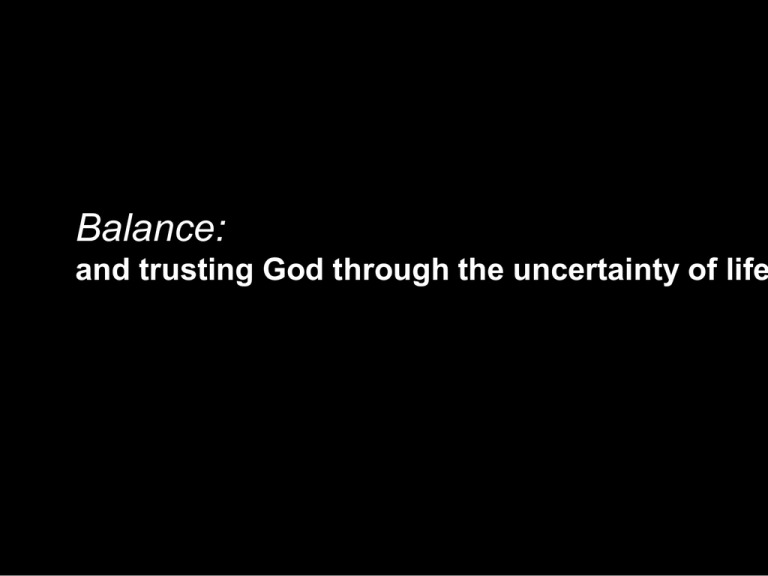
Balance: and trusting God through the uncertainty of life Age of Enlightenment Jesus Moses Abraham How we got here * aprox. 2010 (Now) Modern Era – – – – - Coming out of the age of enlightenment - Aprox. 1700s - Scientific discovery (Newton onwards) - Reason became the primary way of knowing Post-Modernism – – – – – - Starting aprox. 1800s - Not in general population until later - Defined as what came after modernism - 'There is no absolute truth' - 'I can do whatever I feel' Age of Enlightenment Jesus Moses Abraham How we got here * aprox. 2010 (Now) How we read the bible – – – – – - For 1000s of years pre-moderns read it - The bible is not an instruction book - Inspired by God through people - Uses human idiosyncrasies, metaphors, phrases - Read and study it in context Faith vs. Reason Faith and Reason – Modernism increase reliance on science – Faith seemed less reasonable – Modernism has failed to answer everything • - Turned humans into nothing but smart animals • - Cannot explain beauty / love / meaning • - Existence of Post-Modernism Evidence for God Examples: Cosmological argument - must be a first cause “I think there for I am” - more than just a biological computer Science of fine tuning - and other arguments about the design of the universe Evidence for God “How can a good God allow suffering?” - No complete answer to this - But can say doubting God is not the answer 1) If there's good, there must be evil 2) If there's evil there must be some kind of moral law 3) If there's a moral law there must be a moral law giver. Evidence for God No answers from naturalism: “The universe we observe has … no design, no purpose, no evil and no good, nothing but blind, pitiless indifference. … DNA neither knows nor cares. DNA just is. And we dance to its music.” - Richard Dawkins Evidence for God “There is no absolute truth” - Is that statement true? - Is that an absolute statement? Faith and Reason "God has put enough into the world to make faith in Him a most reasonable thing, and He has left enough out to make it impossible to live by sheer reason or observation alone" - Ravi Zacharias. Emotions vs. Mind Emotions and Mind – The modern world emphasize reason – The church was influenced by the modern world – Emotions started to be seen as irrational even in the church Emotions and Mind – The modern world emphasize reason – The church was influenced by the modern world – Emotions started to be seen as irrational even in the church Emotions and Mind – In the bible emotions ≠ heart – “...I will put my law in their minds and write it on their hearts...” Jeremiah 31:33 – “If you confess with your mouth that Jesus is Lord and believe in your heart that God raised him from the dead, you will be saved.” Romans 10:9 – “Do not conform any longer to the pattern of this world, but be transformed by the renewing of your mind...” Romans 12:2 Emotions and Mind Spiritual vs. Physical Spiritual and Physical The Physical Isn't Bad Flesh - Paul is using it to describe our sin nature “I will give you a new heart and put a new spirit in you; I will remove from you your heart of stone and give you a heart of flesh...” Ezekiel 36:26 “God saw all that he had made, and it was very good...” Genesis 1:31 “But in keeping with his promise we are looking forward to a new heaven and a new earth, the home of righteousness”. 2 Peter 3:13 Spiritual and Physical Supernatural vs. Spiritual “When Jacob awoke from his sleep, he thought, "Surely the LORD is in this place, and I was not aware of it.” Genesis 28:16 “After the earthquake came a fire, but the LORD was not in the fire. And after the fire came a gentle whisper." 1 kings 19:12 Spiritual and Physical Discipline vs. Love Discipline and Love Still exploring this idea What I talked about two weeks ago, in summary - God disciplines those he loves - Act of trusting the holy spirit's work in us Authenticity - Should I care for this person? - Or wait till I feel like caring for this person? - Not just because “its the right thing to do” - Out of believe the person is valuable - Feelings often follow action Balance Wisdom is someone asking “is some thing one thing or another” and you responding “sometimes its one thing and sometimes its another”, and sometimes its not.



